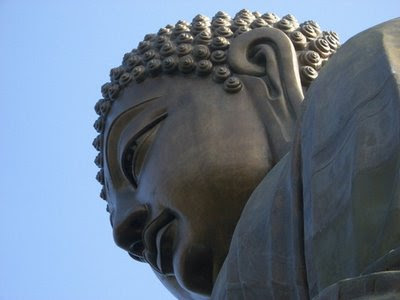
Bahauddin Valad, Father of Rumi (1150-1231)
Alif Lam Mim.
If God says We, meaning I AM, then any pronoun I use becomes superfluous. Designations fall like petals. Wisdom comes, and I feel such pleasure flooding me that I fear losing my sense of it. I tell myself: Inquire into how lover, beloved and the other ways of loving exist as one thing.
As it is with God's qualities and human beings, so there is a unity with love. In the heart there is no room for differentiation, only oneness and the Beloved. I would give away books, lands, my virtues and reputation, everyone, for one hour inside that Presence.
(Maarif 1:172-173)
This is how God talked with Muhammad, saying, 'We have given you victory' (Quran, 48:1), There was companionship between them, 'We have sent down to you a book' (4:105), and 'Have we not expanded your heart' (94:1)?
They spoke together like friends. Has anyone else had such an experience? And since the divine mystery is part of everything and everyone, must there not be such nearness inside everyone?
An answer came to this wondering argument. There are ways unique to each soul. One gets handed pain, another love, another lust. One must go through terrible punishment, another extensive comforting.
But the way of God with prophets is on another level, where miracles and grace and visions of the unseen world come. Aspire to that plane. Otherwise you will continue to speak to God about heat and cold, food, livelihood, sleep, walking, and the various human theories about mystery.
May prayer is this. When I am alone with You, let me feel pleasure of a surrendered love. Give me the oneness as I sit by myself beyond the satisfaction of any desire.
(Maarif 1:174-175)
Someone asked me what is the knowing I speak of and how does the love I mention feel. I said if you don't know, what can I say? And if you do know, what can I say? The taste of knowing love has no explanation, and no account of it will ever give anyone that taste.
(Maarif 1:143 )
When I was sick, it came to me that there are two approaches to work. One is bold and quick, fearless in action. The other is worried and constricted with concern about things that could possibly go wrong. If action flows from anxiety, the outcome is murky and disturbed. But if action moves with a swift joy and courage, the world begins to resolve its difficulties and grow whole.
(Maarif 2:24)
I am afraid for anyone to see my faults, my baldness, my privates, the body flaws I hide with clothers. But bride and bridegroom see everything about one another. They can be many ways with each other, tender and mocking, playfully rough, any way at all, because they have no fear with each other. Likewise, the mystery of God knows everything about me. Here, out in the open in front of that, I say, Do whatever you want with this body. Every part of me stands naked in front of you, like a new bride ready for whatever will happen-- love, fear, service, difficulties, humiliation, delight.
(Maarif 2:139-140 )
from The Drowned Book
Ecstatic and Earthly Reflection of Bahauddin, The Father of Rumi
by Coleman Barks and John Moyne


